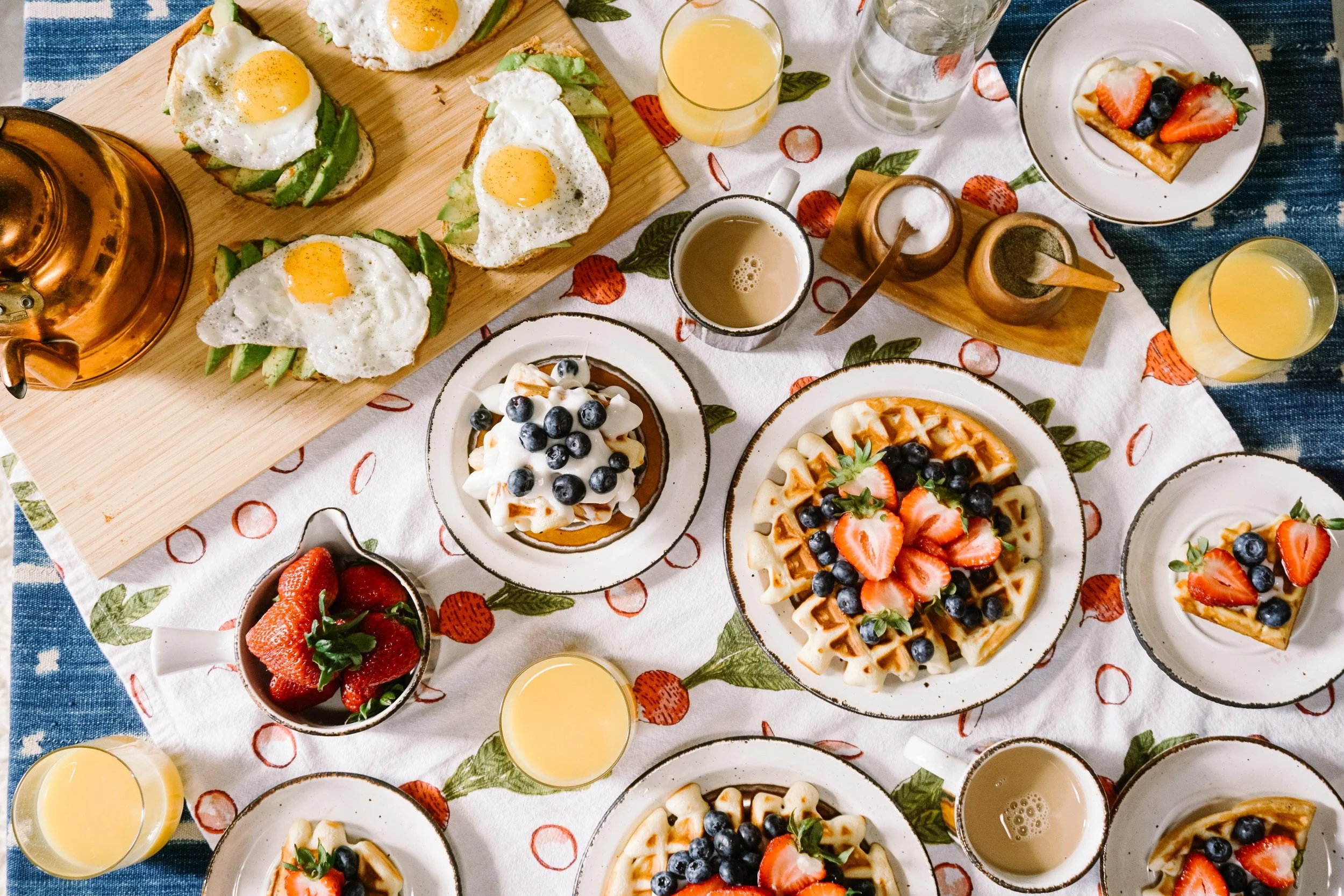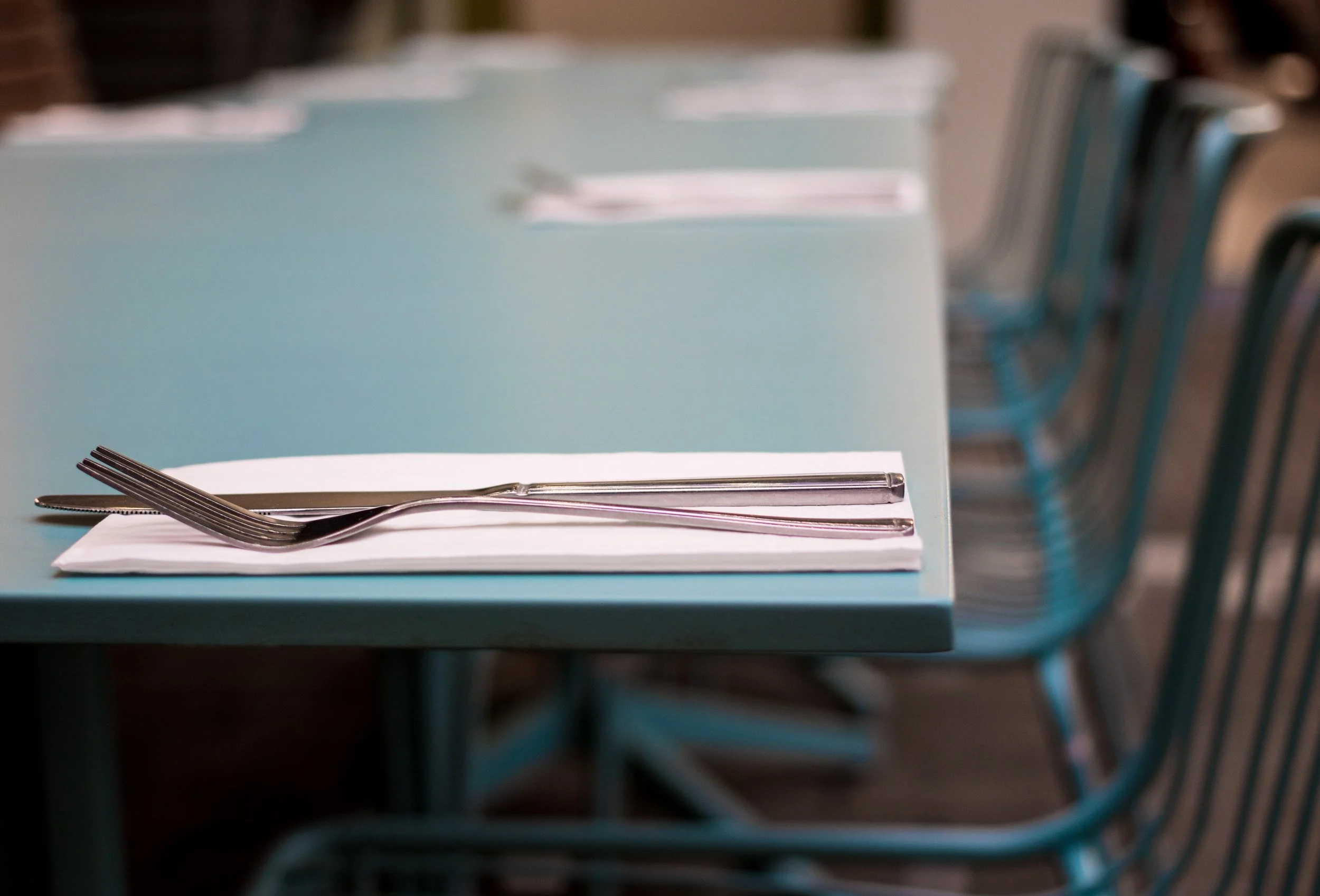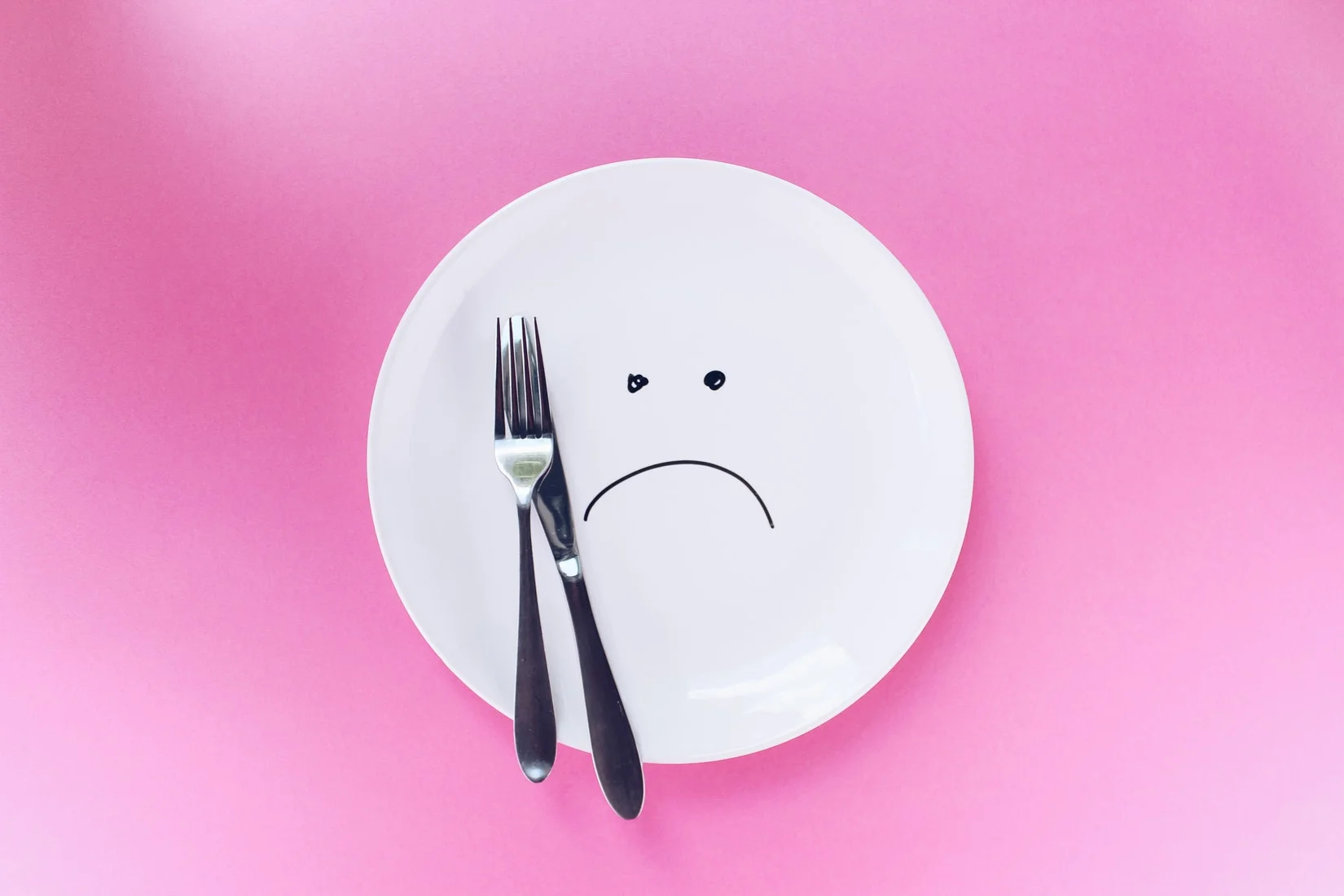Good Food, Bad Food, And Exploring The Language Of Diet Culture
How many times have you heard someone say, I’ve been so good lately, so I’m going to treat myself to this cake? Or I’m being very naughty and ordering dessert? Or, After Christmas I’m getting rid of all the bad food in the cupboard? It's likely that you’ve heard these phrases countless times, from people of all ages and from a variety of backgrounds. That’s because we live in a society where losing weight is the goal set by the diet industries trying to sell us products, whether that’s diet pills, gym memberships, protein shakes or low-calorie ready meals. Big companies have poisoned society with the idea that in order to have worth and value, we must always be in battle with our bodies. And somewhere along the way, the language of diet culture has trickled down into our everyday language. We are unknowingly perpetuating diet culture by using language to suggest that food isn’t just food, it’s either good or bad, naughty or nice, clean or dirty - this is a complicated concept, so let me explain.
Ever since I can remember, I’ve been told by the people around me that the food I’m eating is less important than what it will do to my physical appearance. The taste, experience and social or cultural importance of that food was irrelevant, because it wasn’t just food, it was carbs and sugar and fat. Bad stuff and good stuff. When I was growing up, diets were a hot topic for the girls in my school and in my friendship groups, and this was and is the same for most young people across the UK. When we were eating lunch in school we weren’t eating food, in our minds we were eating calories. The joy of a friend’s birthday cake was snatched from us when we were told by the media that of course, cake is ‘bad’ and ‘naughty’. We had to compensate by eating ‘good’ food like the media told us, so we gobbled down green smoothies and salads and carrot sticks. This becomes a big problem when young people and adults start feeling guilt and shame for eating certain foods, and an even bigger problem when all foods are seen as bad, as is the case for many people dealing with eating disorders. Because if we are told that ice-cream is ‘bad’ then we feel bad and are bad for eating it.
By the time I reached 14, the language of diet culture had ground me down. I lost track of what food really was and became physically frightened of consuming it. I didn’t look at the meal in front of me and see it as something my mother had lovingly prepared for me, I saw it as calories, micro-nutrients, sugars and fats. I suffered with Anorexia and Bulimia for most of my teenage years, and I strongly believe that the language of diet culture played a big part in my eating disorders. Only during recovery did I learn the crucial lesson, that food is food and we need food to survive.
Something important that I discussed a lot in therapy, was the idea of food and nutrition being a science. The media and the diet industries use a lot of emotive words to describe food and nutrition, but really, there’s no place for emotive language in science. We wouldn’t say, That plant is being naughty, look how much photosynthesis it’s doing. We need to change how we talk about food, because when we look at it as a science, quite frankly, we sound ridiculous.
You won’t hear a nutritionist or a dietician say that any food is particularly good, bad, naughty or clean. Why? Because in moderation, all food contributes towards a healthy diet, and a healthy attitude towards food. For example, we need to eat fat, carbohydrates, protein, minerals, vitamins and water in our diets. We need to eat these things to live. So a couple of biscuits or a Chinese takeaway as part of a balanced diet are not ‘bad’, in fact they contribute towards a healthy mind-set. Eating small amounts of foods that are high in sugar or fat is actually okay, because by eating small amounts of what we like, we avoid getting into the cycle of restricting certain ‘bad foods’ from our diet, then thinking about them all the time and even binging on them after periods of restriction.
Instead of words like ‘bad’ and ‘good’, we can use words that describe what food actually is. Chocolate isn’t bad, it’s got a high sugar and fat content, so if we eat vast amounts of it may affect us or we may become unwell, but no matter how much chocolate you eat, you are not a bad person. Eating chocolate is not committing a sin. Likewise, the same can be said for what we perceive as ‘good’ foods. Vegetables contain lots of minerals, vitamins and fibre so if we eat vegetables they will definitely contribute towards a healthy diet, however if you only eat vegetables you aren’t any more ‘good’ than the rest of us, and actually you’ll end up physically and mentally unhealthy. Balance is key here.
How many times have we seen headlines shouting about “THE WAR AGAINST SUGAR” or, “NEW RESEARCH SHOWS FAT IS THE ENEMY” or, “SCIENTISTS DISCOVER THAT EXPENSIVE LETTUCE IS YOUR NEW BEST FRIEND IF YOU’RE TRYING TO SHED THOSE CHRISTMAS POUNDS”. Here’s a real news flash for you. Sugar is not out to get you. Sugar is an inanimate substance with no grievance against you. A bit of sugar in an overall balanced diet will not kill you, or make you gain a stone, or come after you at night with a cricket bat and jar full of spiders. A good general rule here is just to take the news with a pinch of salt. I mean really, if scientists actually discovered that fat was out to get us all, someone would be firing missiles at it as we speak.
‘Clean eating’ is another potentially toxic term we use to describe food. Pure, wholefoods are described as clean, implying that anything processed is dirty. Of course, supposedly ‘clean’ foods like fruits are healthy for us in moderation because of their nutritional composition, however that doesn’t mean that a kebab is dirty, or that pizza is dirty or that donuts are dirty. Sure, if you throw a donut onto the pavement and cover it in gravel and used tissues, then it will be dirty. It’ll actually be filthy. But on it’s own a donut is not dirty, or bad or naughty, it’s just food.
The language of diet culture is so engrained into our every day speech that we don’t even know that we’re maintaining unhealthy, warped attitudes towards food. Throughout most of history, people had no idea about nutrients, calories and macros, they just ate a balanced diet and for the most part, they were nutritionally healthy. Only in the last 100 years have we started to feel like we’ve done something wrong by eating, and we need to stop this trend before it does any more damage. Already the number of people with eating disorders have spiked and that will only get worse if we continue to insist that foods are in binary categories; good or bad.
Changing the way we talk about food is easier than it might seem. Perhaps we don’t need to announce to everyone how that we’ve eaten so much ‘bad’ food over the weekend, so we can only have a salad today. Perhaps instead of having ‘cheat’ days and ‘clean’ days, we eat a balanced diet all the time and respond to our cravings for sweet or fatty foods in a rational, healthy way. Perhaps we drink the damn green juice in silence instead of boasting to all our friends about how ‘good’ we are. Perhaps we just eat our food, because it’s just food, and our self-worth will never be defined by what we eat.








